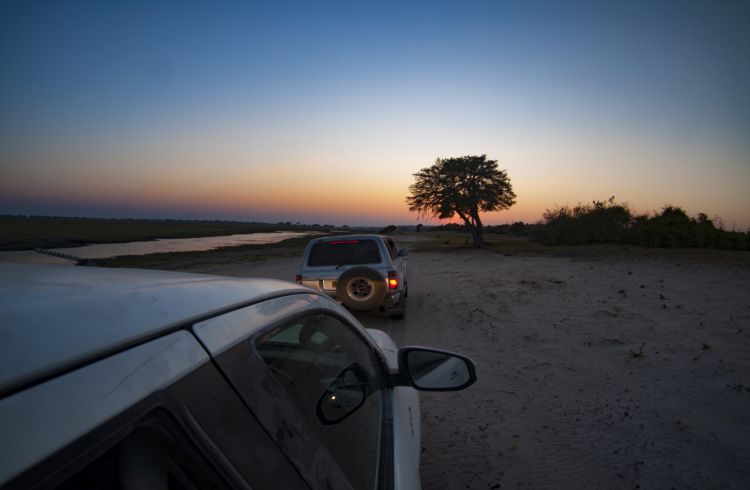Renting a one-way car in East Africa generally incurs additional costs compared to a round-trip rental due to the complexities involved in returning the vehicle to a different location. The overall expense includes a drop-off fee, which varies depending on factors such as the rental company, the distance between the pick-up and drop-off points, and any specific cross-border travel requirements. To get an accurate estimate, it’s important to consult rental agencies directly and understand their pricing structure and any extra charges that may apply.
FACTORS INFLUENCING COST
The cost of a one-way car hire in East Africa is influenced by a variety of factors. Understanding these factors can help you make an informed decision, manage your budget effectively, and avoid unexpected expenses. Here’s an in-depth explanation of the key factors influencing the cost of car rentals in this region:
- Type of Vehicle
The type of vehicle you choose significantly impacts the rental cost. Vehicles are categorized into several types, each with different rental rates:
- 4x4s (LX, V8, PRADO): Popular for safaris and rough terrain, 4x4s are more expensive due to their enhanced capabilities and larger size. Daily rental rates for 4X4 typically range from $100 to $200. This category includes vehicles suited for both urban and off-road conditions, which makes them versatile but pricier.
- Luxury Safari Land Cruiser Vehicles: For those seeking a high-end experience, luxury vehicles come with a premium cost. Daily rental rates for luxury cars can range from $180 to $300. These vehicles offer advanced features, superior comfort, and higher performance, contributing to their higher rental cost.
- Rental Duration
The duration of the rental period affects the overall cost. Generally, longer rental periods come with lower daily rates compared to short-term rentals:
- Short-Term Rentals (1-3 Days): These often have higher daily rates due to the short rental period. Rental companies might charge more per day because they need to account for the quick turnaround and increased administrative costs.
- Long-Term Rentals (7 Days or More): Renting a car for a week or more usually results in a lower daily rate. Many rental companies offer discounts for longer rental periods, making it more cost-effective if you plan to rent the vehicle for an extended duration.
- One-Way Rental Fees
One-way rentals, where you pick up the car at one location and drop it off at another, typically incur additional fees. These fees are charged to cover the cost of repositioning the vehicle and can vary based on:
- Distance: The cost of one-way rental fees often depends on the distance between the pickup and drop-off locations. Longer distances usually result in higher fees because of the increased logistics involved in retrieving the vehicle.
- Rental Company Policies: Different rental companies have varying policies regarding one-way fees. Some might offer lower fees for popular routes or have promotional offers, while others may charge a premium for one-way rentals.
- Insurance Coverage
Insurance is a crucial aspect of car rentals, and the level of coverage you choose can affect the overall cost:
- Self Drive East Africa provides comprehensive and third-party insurance as standard with all car rentals. This Insurance Policy covers ONLY, Head on Collusion and theft for the motor vehicle. The policy does not cover any damage caused by negligence such as driving under the influence of alcohol, wheels/trims, cigarette burns (Our vehicles are all non- smoking), punctures, damage to radio covers, badges, passing through water and the engine knocking etc. This policy does not cover Personal Life Insurance for the occupant. The Renter is advised to come with a life insurance policy from his / her home country.
- Fuel Costs
Fuel costs are not included in the rental fee and can vary based on your driving habits and the vehicle’s fuel efficiency:
- Fuel Policy: Rental companies usually have specific fuel policies. Some require you to return the vehicle with a full tank, while others might offer prepaid fuel options. Understanding the fuel policy can help you manage costs effectively.
- Fuel Prices: Fuel prices in East Africa vary significantly by country and location, with average prices generally ranging from USD 1.25 to USD 1.70 per liter. This variation is influenced by factors such as local taxes, import duties, and transportation costs. In countries like Uganda and Rwanda, prices tend to be on the lower end of this spectrum, while in Tanzania and Kenya, they are often higher. Regional disparities and fluctuations in global oil prices also contribute to these variations, making it essential for travellers to check local rates regularly.
- Location-Specific Factors
The cost of renting a one-way car can vary depending on the location:
- Urban vs. Rural Areas: Renting from a major city or airport location may be more expensive due to higher demand and added convenience. Rural locations may offer lower rates but could have fewer vehicle options.
- Cross-Border Travel: If your rental involves crossing international borders, check if the rental company allows it and if any additional fees or paperwork are required. Cross-border rentals may come with extra charges and specific insurance requirements.
- Seasonal Variations
Rental prices can fluctuate based on seasonal demand:
- Peak Season: During high travel seasons, such as holidays or peak tourist periods, rental prices may increase due to higher demand. Booking early can help secure better rates during these times.
- Off-Peak Season: Prices might be lower during off-peak periods when demand is reduced. Renting during these times can result in cost savings and potentially better vehicle availability.
TIPS FOR RENTING A ONE-WAY CAR IN EAST AFRICA
Renting a one-way car in East Africa can be a practical solution for travellers who wish to explore multiple destinations without the hassle of returning to their original location. However, it comes with specific challenges and considerations. Here’s an in-depth guide with tips to help you navigate the process effectively.
- Understand the One-Way Rental Concept
One-way car rentals involve picking up a vehicle at one location and dropping it off at another. This type of rental can be convenient for long trips or multi-destination travel. However, it often incurs additional fees due to the logistics involved in repositioning the vehicle. Understanding these dynamics will help you plan better and avoid unexpected costs.
- Book Early for the Best Rates
Booking your one-way rental car as early as possible is crucial. Early bookings generally offer better rates and a wider selection of vehicles. Rental companies often have promotions or discounts for early reservations. By securing your vehicle in advance, you can avoid the higher costs and limited options that might be available closer to your travel dates.
- Compare Rental Companies
Not all car rental companies offer the same rates or terms for one-way rentals. It’s essential to compare different providers to find the best deal. Use comparison websites and check customer reviews to gauge the reliability of each company. Look for factors such as:
- Rental Rates: Compare daily rental fees and one-way charges.
- Vehicle Selection: Ensure the company offers the type of vehicle you need.
- Insurance Options: Review the insurance coverage provided and available add-ons.
- Customer Service: Consider the quality of customer service based on reviews.
- Check for Hidden Fees
One-way rentals often come with hidden fees beyond the daily rental rate. Make sure to read the rental agreement thoroughly to understand all potential charges, including:
- One-Way Fee: This is a charge for dropping off the vehicle at a different location, and it can range significantly depending on the distance and rental company.
- Mileage Charges: Some rentals have a mileage limit, and exceeding it can incur additional fees.
- Insurance Costs: Basic insurance may be included, but additional coverage for collision damage or theft might cost extra.
- Fuel Policy: Check if you need to return the car with a full tank or if there are other fuel-related charges.
- Understand Insurance Coverage
Insurance is a crucial aspect of renting a vehicle. While most rental companies include basic insurance, it may not cover all potential issues. Consider the following:
- Collision Damage Waiver (CDW): Covers damage to the rental vehicle. Verify the coverage limits and any deductibles.
- Third-Party Liability Insurance: Covers damages or injuries to third parties. Ensure it meets local requirements.
Evaluate your insurance needs and decide if additional coverage is necessary for your trip. If you have travel insurance or credit card coverage, check if it provides rental car insurance and if it covers one-way rentals.
- Plan Your Route
Your route will influence the cost and feasibility of a one-way rental. Consider the following:
- Distance: Longer distances typically incur higher one-way fees. Plan your route to minimize costs and ensure that it aligns with rental company policies.
- Road Conditions: Research the road conditions and any potential challenges along your route. This will help you choose a suitable vehicle and avoid unexpected delays.
- Border Crossings: If traveling between countries, check if the rental company allows cross-border travel and if any additional paperwork or fees are required.
- Inspect the Vehicle
Before driving off, conduct a thorough inspection of the rental vehicle:
- Exterior and Interior Condition: Check for any pre-existing damage and ensure it’s documented by the rental company. Take photos if necessary.
- Functionality: Test all essential functions, such as lights, brakes, and air conditioning, to ensure the vehicle is in good working order.
- Equipment: Ensure that any additional equipment you requested (e.g., GPS, child seats) is present and in good condition.
Report any issues to the rental company immediately to avoid being held responsible for damage that wasn’t caused by you.
- Review the Rental Agreement
The rental agreement is a legally binding document that outlines the terms and conditions of your rental. Key points to review include:
- Rental Duration: Confirm the pickup and drop-off dates and times.
- Charges and Fees: Verify all costs, including daily rates, one-way fees, and any additional charges.
- Return Policy: Understand the policies for returning the vehicle, including the condition it should be in and the return location.
- Emergency Contact Information: Keep the rental company’s contact details handy in case of any issues during your trip.
- Plan for Fuel Costs
Fuel is an additional cost not included in the rental fee. To manage fuel expenses:
- Know the Fuel Policy: Understand whether you need to return the car with a full tank or if other fuel arrangements are in place.
- Estimate Fuel Consumption: Calculate the estimated fuel consumption for your trip based on the vehicle’s fuel efficiency and your route.
- Refuel Strategically: Refuel at local stations to avoid higher prices at remote or airport locations.
- Prepare for Unexpected Issues
Despite thorough planning, unforeseen issues can arise. Be prepared by:
- Carrying Contact Information: Have the rental company’s contact information and roadside assistance number readily available.
- Understanding Local Driving Conditions: Familiarize yourself with local driving laws and road conditions to navigate safely.
- Having a Backup Plan: Be prepared for potential changes in your itinerary or vehicle issues. Know your options for extending the rental or finding alternative transportation if needed.
- Return the Vehicle Properly
Returning the vehicle in good condition and on time is crucial to avoid extra charges:
- Clean the Vehicle: While not always required, returning the car in a clean state can help avoid cleaning fees.
- Check for Personal Belongings: Ensure you don’t leave any personal items behind in the vehicle.
- Complete a Return Inspection: If possible, complete a return inspection with a rental company representative to document the vehicle’s condition and confirm that there are no additional charges.
Conclusion
Renting a one-way car in East Africa typically incurs extra costs due to the logistical complexities of vehicle drop-off at a different location. To ensure accurate budgeting and avoid unexpected expenses, it is crucial to directly consult rental agencies for detailed quotes and to understand their specific fees and policies related to one-way rentals.









